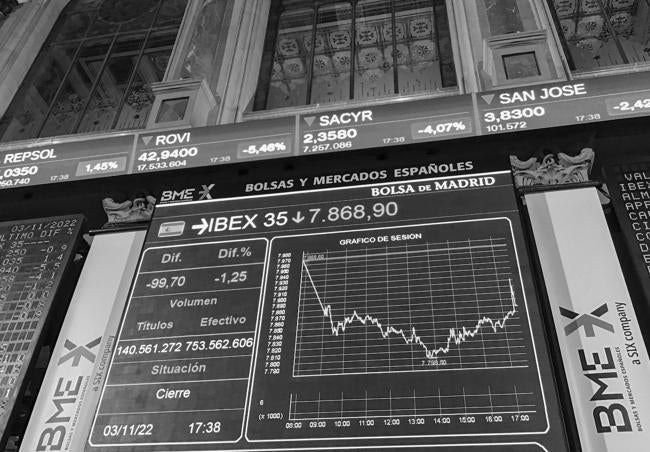
The cost of being out of the market
Investors hurt themselves over the long run by getting frightened out of the market when it has been ugly and missing the critical best days
Jeremy Blatch
Malaga
Friday, 15 December 2023, 16:35
Sections
Highlight

Jeremy Blatch
Malaga
Friday, 15 December 2023, 16:35
Stock market prices have rallied sharply this year but many investors have missed the rally, preferring the apparent safety of cash. The debate about whether ... and when interest rates in the US will decline, and whether we face a recession in the US or globally has expert economists and media pundits widely divided, adding to uncertainty and fear. Those who have elected to exit the stock market would do well to study history regarding the cost of being out of the market.
In response to uncertainty, investors may:
1) Time the market (sell what has gone down to buy what is going up, or revert to cash).
2) Select specific stocks or groups of stocks.
3) Make timely changes to strategy.
4) Develop a superior long-term investment philosophy.
To succeed, all but the last require: a) being in the market when prices are rising and out of the market when prices are falling or b) moving from asset groups that have underperformed the market to those expected to outperform.
But long-term success with these methods is rare. The regulator demands that all known information on a security be made available to all market participants at the same time. Therefore, it is well-nigh impossible to gain a competitive edge in the publicly traded market. The only guaranteed winner is the broker (the croupier), who takes a trading commission at a cost to the investor.
Investment history shows that the very first weeks of a recovery return a large portion of future gains. On average, the market does just as well when the investor is in it as when he or she is not. It is the investor who loses money by being out of the market for part of the time. An academically peer-reviewed study found that the total returns in 20 years, compounded from 10,000 trading days, were achieved in the best 35 trading days. (Imagine if we could work out in advance which days those would be!) A similar study found that missing the best five days out of 72 years would reduce cumulative compound returns without dividends by nearly 50%. If missing just the best 10 days over 112 years (10 days out of 49,910 days), 75% of total gains would be lost.
Investors hurt themselves over the long run by getting frightened out of the market when it has been ugly and missing the critical best days. Behavioural errors are the single biggest reason for the permanent loss of capital, because the market can remain irrational longer than we can remain solvent. Weathering the storm and staying in the market in the bad times will reward patient investors when the market reprices.
The author is a member of the Society of Trustees and Estate Practitioners and an investment counsellor. The comments and observations by the author are a reflection of his opinion and do not constitute an offer to buy and hold securities, nor does he receive any remuneration of any kind from names referred to.
¿Tienes una suscripción? Inicia sesión
Publicidad
Publicidad
Publicidad
Publicidad
Esta funcionalidad es exclusiva para registrados.
Reporta un error en esta noticia

Debido a un error no hemos podido dar de alta tu suscripción.
Por favor, ponte en contacto con Atención al Cliente.

¡Bienvenido a SURINENGLISH!

Tu suscripción con Google se ha realizado correctamente, pero ya tenías otra suscripción activa en SURINENGLISH.
Déjanos tus datos y nos pondremos en contacto contigo para analizar tu caso

¡Tu suscripción con Google se ha realizado correctamente!
La compra se ha asociado al siguiente email
Comentar es una ventaja exclusiva para registrados
¿Ya eres registrado?
Inicia sesiónNecesitas ser suscriptor para poder votar.